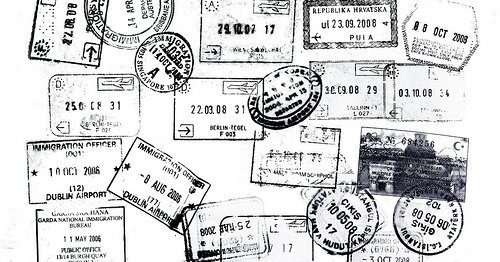The approaching betwen Turkey and the EU, which started in 1963, kept going with the characters of a customs union in 1966, while negotiations about Turkey’s accession started in 2005. Notwithstanding the way these debates rub off everybody, there are still big obstacles for the citizens of Turkey to overcome in order to be able to live and work in the EU Member States. This situation also affects their cultural, economic, social and political relations. It is a naked truth that this situation blocks the membership and the integration of Turkey into the EU, directly or indirectly.
The juridical sources for a Europe without visa are ‘the agreement establishing an Association between the European Economic Community and Turkey (the Ankara Treaty, signed in 1963)’ , ‘the Additional Protocol’ signed in 1973 and the ‘EEC-Turkey Association Council Decision’ in 1980. These texts are based on partnership on equal conditions, full membership , bilateralism and supranationality.
The Additional Protocol gave certain rights to the citizens of Turkey - businessmen, doctors, journalists, artists, scientists, students and academicians - but these rights were broken by some EU Member States’ decisions, adopted in the framework of some of their municipal laws. Thus, the acquired rights were violated. At the same time, these sources - which are supranational - shall have supremacy over the municipal laws of the EU Member States, which makes these decisions unlawful.
These enforcements of the Member States cause a juridical insecure atmosphere and also show us the nationalist attitudes of some EU states. Obstacles in front of political, economic, social and cultural relations - as mentioned - cause big problems especially for scientists, academicians, students, researchers and businessmen. Alongside this, from 1980 onwards, visa applications cost nearly 500 million Euros to the budget of Turkey. (Prof. Harun Gumrukcu, Our Rights on the Area of the EU)
It was first Germany that started requesting visa to Turkish citizens because of a decision taken in municipal laws. Following this, other countries (Benelux countries, France, etc.) took similar decisions. Together with the contradiction of the Additional Protocol, these decisions are contrary to the EEC/EU Partnership Law. This contradiction to the law was outstanded by over fourty conclusions of the European Court of Justice.
One point must especially be highlighted: the European Parliament and the European Commission should follow with more attention Turkey’s progress report and the Member States’ decisions regarding the treatment of Turkish citizens. It would be more fair, as the European Commission is responsible for the application and control of the European legislation, and the Court of Justice of the European Communities is responsible for the interpretation and validation of international agreements.
the European Parliament and the European Commission should follow with more attention Turkey’s progress report and the Member States’ decisions regarding the treatment of Turkish citizens
Nowadays, we hear positive news about the visa systems in the EU Member States. This is because of decisions which were taken in municipal laws, European Commission and the Court of Justice of the European Communities, as well as some opinions of the national government.
During the last few months, some EU Member States began to make concessions to a few Turkish chambers and associations. This clearly shows that the state of of the arte of the application of visa is going towards a positive evolution, but also shows that the situation is really in contradiction to the current legislation. I believe that this may be misleading for the citizens of Turkey.
Despite decisions taken by the European Court of Justice, some current visa applications in the EU go against the rule of law. This casts a shadow on the European Union’s understanding of legality and justice.
This contradiction to the law must be put to an end. In this situation, NGOs should show interest in this topic and look for a solution.
Moreover, the Memorandum of Understanding of the EU Education and Youth Programme, declares that ‘…Member States and Turkey will make an effort for students, teachers, academics, university directors, youngsters to benefit from programmes and their free circulation and accommodation…(Memorandum of Understanding, Annex 1, Article 7). But these people, who want to go to the EU countries for education programmes, still have problems with their visa application processes. Necessarily, these obstacles increase the the gaps between people and countries. Youngsters cannot participate in the implementation of projects which were organised by them. These problems bring obviously also negative effects on building of the ‘European citizenship’, which shall be based on ‘equality and cohabitation of differences’.
Only two changes may mend the current situation:
EU Member States act in accordance with the European legislation and the agrrements signed with Turkey;
Turkish NGOs start raising their voice and helping citizens to become conscious.
If these are realised, the relations between Turkey and the EU are likely to improve, and we may aven finally see Turkey becoming a Member State of the EU. This success would certainly aven raise the implementation standards of the rule of law in Europe.

Follow the comments: |
|
